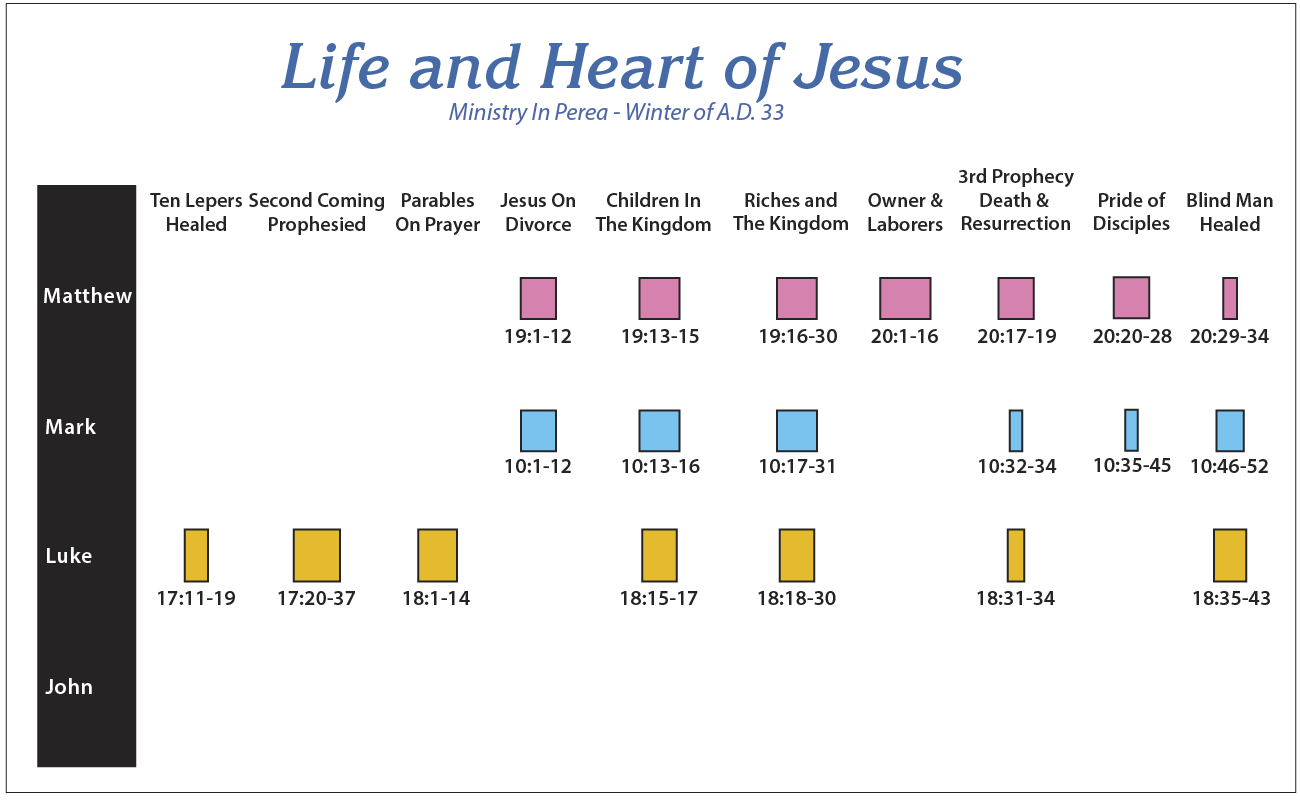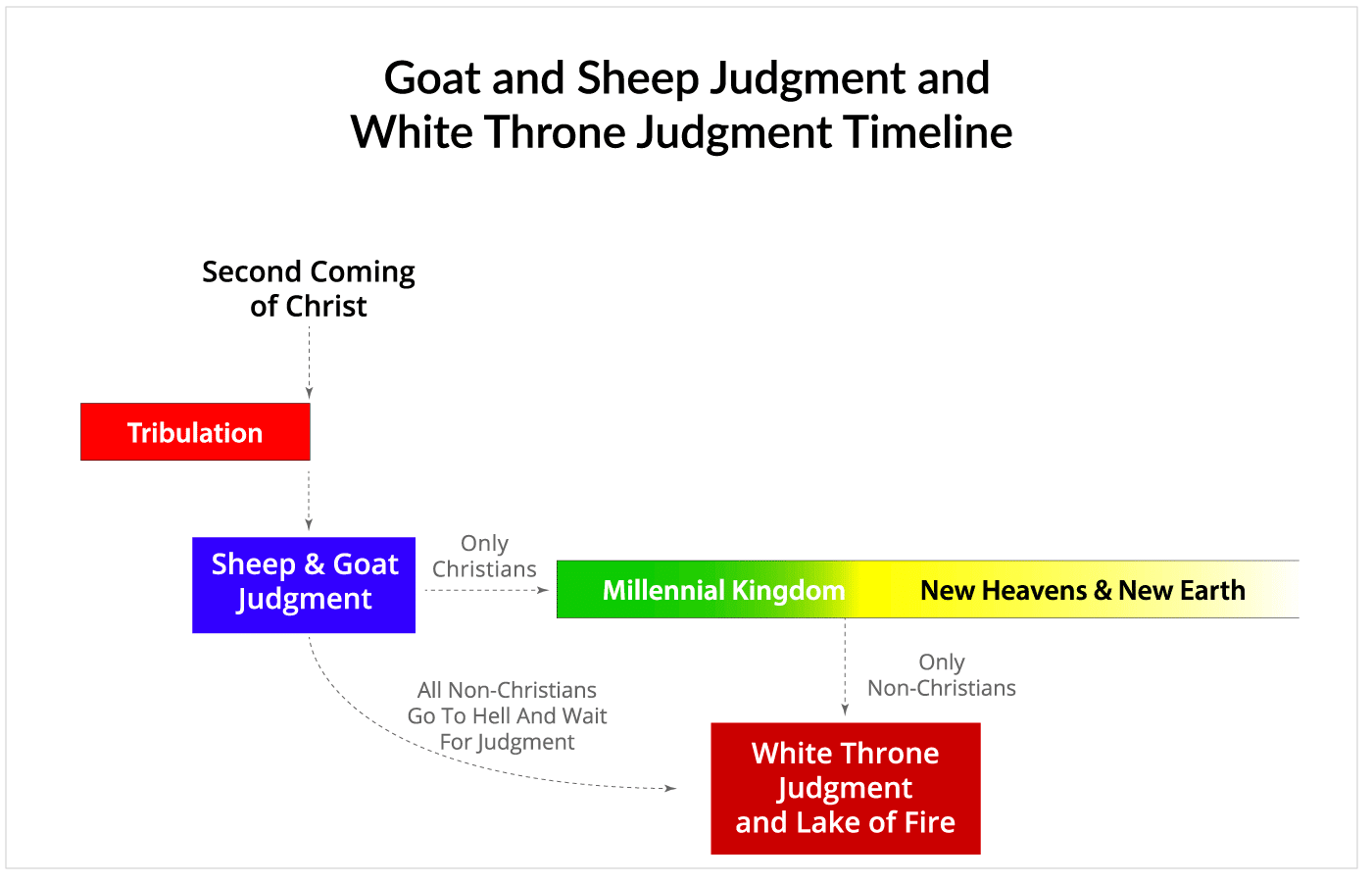
Luke 18:9-14 is a very popular parable in the New Testament called “The Parable of the Pharisee and the Tax Collector.” It is also known as the “The Parable of the Pharisee and the Publican.” The parable is well-known among Christians. Books, sermons, and movies have been written about it. The common view of this parable among both Christians and non-Christians is that the parable is a comparison between a proud man and a humble man. But the parable does more. It reveals how a proud and a humble person act; it reveals the very character of the proud and the humble. The parable helps us identify ourselves and helps us understand if we are going to heaven or hell. The parable is more than a comparison of pride and humility. So, let’s discover together what Jesus taught His disciples.
Background
The opening verse of our study is Luke 18:9. Immediately we are told that Jesus had spoken a parable to some people who trusted in themselves.
And He also told this parable to some people who trusted in themselves that they were righteous, and viewed others with contempt . . . Luke 18:9 (NASB)
This is a fascinating verse because we are told that Jesus was speaking to some who viewed others with contempt. We rarely find Jesus making any comment about people filled with contempt toward others. That alone should make us take special notice of Jesus’ words. We should ask ourselves what did He mean by contempt? How can we know that we have contempt for someone? If we do have contempt, what should we do?
The first place to start is to understand the word contempt. Now an English dictionary might seem to be helpful, but the gospel of Luke was not written in English. It was written in Greek. Therefore, the best place to start is to discover the meaning of the Greek word for “viewed with contempt,” which is exoutheneõ. This word is sometimes translated as “rejected” or “despised.” But the literal meaning of the word is “to count as nothing.” This helps us understand the meaning of this word. That was our first question.
The people to whom Jesus was speaking felt some people were nothing compared to themselves. Some people were unimportant. Compared to themselves, some others were spiritually inferior. They believed their own behavior was pleasing to God. We could say they believed they were good persons, but others were not. They counted some people, especially those who were committing some sin, as nothing. Can I ask, “How do you feel about politicians who commit certain sins?” What about someone in your family? How do you feel about those who do not believe what you believe? Luke 23:10-11 tells us that Herod and the Roman soldiers had a similar attitude toward Jesus. Carefully read the words of these two verses and notice how God described their attitudes.
And the chief priests and the scribes were standing there, accusing Him vehemently. And Herod with his soldiers, after treating Him with contempt and mocking Him, dressed Him in a gorgeous robe and sent Him back to Pilate. Luke 23:10-11 (NASB)
What was their attitude? They had contempt for Jesus. They thought He was nothing! Therefore, they treated him as if he was nothing! Sadly, the creature had contempt for the creator. Isn’t that the way we treat those we do not know? Have you ever been rude to someone you do not know? Then later you were thankful that they did not know you? What does that thought reveal about your attitude toward them? It reveals they were nothing to you! They were not important enough to treat them with honor.
The apostle Paul reveals in 1 Corinthians that he had heard how the Corinthians felt about his messages. Here is what he said,
For they say, “His letters are weighty and strong, but his personal presence is unimpressive and his speech contemptible.” 1 Corinthians 10:10 (NASB)
He says they had contempt for his preaching. We could say they thought he was a terrible speaker—a nothing speaker. He was not eloquent or gifted. Now, how do you feel about your pastor’s messages?
So, do you have contempt for someone? Do you “count as nothing” the abilities of other people? Do you think you can do it better? Do you believe you are more skilled? Have you ever felt someone was inferior to yourself? If you said, “No”, then ask yourself, “Have I ever called someone a name?” Most people have. If this is true of you, then remember that Jesus said we will be judged for every “careless word” in Matthew 12:36. Why will we be judged? Because what comes out of our mouth reveals our heart; it reveals you! Our words do not condemn, but our heart condemns!

Two Religious Men
Then Jesus began His parable in verse 10.
Two men went up into the temple to pray, one a Pharisee and the other a tax collector. Luke 18:10 (NASB)
As we have already said, the parable is about two men. But we have said the two men were worlds apart. The Pharisees were highly respected by the people as righteous men, but the tax collector was considered a sinner. The Pharisees were in control of the synagogues, but the tax collector was in control of taxation. Typically, the tax-collectors in Israel were Jews who worked for Rome. As a result, their fellow citizens hated them because they considered them to be traitors. So, Jesus chose two men for His parable who were complete opposites of each other. The Pharisee was highly respected as a righteous man but the tax collector was viewed as evil. They are standing in the temple near one another.
Since we are told that both of them went to the temple to pray, it is obvious that both believed in God. Now I am confident that anyone who saw them would have highly respected the Pharisee. But what did they think about the tax collector? What do you think of the person who may be sitting next to someone in church? Do you think they believe in God? Do you think they are righteous? Experience has told us that outward appearances are deceiving. We cannot look at the heart of the person sitting next to us. We should be glad that we cannot know the thoughts of the minds and the emotions of the hearts of those around us in church. Have you ever wondered what other people think about you? Have you wondered what they think about everyone else sitting around them? In the next two verses were are told what the Pharisee was thinking about everyone else.
Pharisee’s Prayer to Himself
Verses 11-12 give us the prayer of the Pharisee.
The Pharisee stood and was praying this to himself: “God, I thank You that I am not like other people: swindlers, unjust, adulterers, or even like this tax collector. I fast twice a week; I pay tithes of all that I get.” Luke 18:11-12 (NASB)
Jesus gives us a very important insight into this religious leader’s prayer. Jesus said he was not praying to God. He was praying to himself. If we reflect on the prayer of King David in Psalm 5:1-3, we quickly learn the difference between David’s prayer and the Pharisee’s prayer. David said,
Give ear to my words, O LORD,
Consider my groaning.
Heed the sound of my cry for help, my King and my God,
For to You I pray.
In the morning, O LORD, You will hear my voice;
In the morning I will order my prayer to You and eagerly watch.
Psalm 5:1-3 (NASB)
Now there are many wonderful things to be observed in this prayer, but we must not miss what he said in every line, except the fourth and sixth lines, David asked God to listen to him. In the middle line, David announced “For to you I pray.” He was praying to God, but not as the Pharisee. David asked God to listen, to consider his groaning, hear the sound of his cry, and hear his voice. David was desperately “reaching for God.” King David’s prayer was very different than the one the Pharisee prayed.
Again, the Pharisee’s prayer was about himself. Did you notice that he did not ask God for anything? Instead, he told God that he was a very good man. He said he was “not like other people.” His prayer is amazing. He sounded like he was praying to God, but read his words. Have you ever heard someone preach a short sermon during a prayer? This is common in Bible Studies or at church. In such cases the prayer is not directed to God but to the audience. On such occasions, the words of our prayer are often “more eloquent” because we are speaking to those listening. Imagine how God must feel! What does God think when someone appears to be praying to Him, but the words are directed to the listening audience?
Maybe you preached to your wife, husband, or children while praying! Your intentions may have been good. You wanted to motivate others to have godly behavior or a right attitude. But who was the focus of your prayer? Have you ever rushed a prayer so that you could eat a meal? Have you rushed a prayer at a restaurant because you were embarrassed that others might hear you? If so, who were you thinking about? Who is the focus of your prayers? How would you pray if God was in your presence?
Now it is okay to ask God to heal us. The focus of such a prayer is God. It is an appeal to God to heal. I heard a man pray many years ago who sounded like he had a very close relationship with God while he prayed. I have never heard anyone pray as he prayed. He sounded like he really knew God. He reminds me of King David’s prayer. But that is not true of the Pharisee.
Next, let’s think about the actual words of the Pharisee’s prayer. He said that he was glad that he was not like those “swindlers, unjust, adulterers, or even like this tax collector.” These people were considered to be “sinners,” according to the Pharisees. Matthew 11:19 tells us the prostitutes, adulterers, and tax-collectors were also considered to be sinners. Drunks and gluttons were also included (Luke 7:34). We could add beggars on the street, drug users, homosexuals, rioters, criminals, and the list continues. But we must not forget that Romans 3:23 says we have sinned too!
All have sinned and fall short of the glory of God. Romans 3:23 (NASB)
Then Paul wrote these words to the believers in the city of Corinth.
Such were some of you; but you were washed, but you were sanctified, but you were justified in the name of the Lord Jesus Christ and in the Spirit of our God. 1 Corinthians 6:11 (NASB)
The point is that Christians in Corinth were just as guilty as the Pharisee. But now we have been justified, or declared to be righteous because of Jesus Christ. We are not any better. We have just been officially declared to be righteous.
In sharp contrast, the Pharisee was filled with contempt (v. 9). He believed he was better than others. How about you? Are you better than other people? Do you consider yourself to be more compassionate? Are you more organized and productive? Do you think people respond to you better? Are you better than those in the other political party, your neighbors, someone at church, or someone in your family? The question is, what is your attitude? Have you forgotten that you are still a sinner—just a forgiven one? The Pharisee considered himself to be spiritually superior! How about you?

Tax Collector’s Prayer of Repentance
Verses 11-12 give us the prayer of the tax collector. We are told this man prayed,
But the tax collector, standing some distance away, was even unwilling to lift up his eyes to heaven, but was beating his breast, saying, “God, be merciful to me, the sinner!” Luke 18:13 (NASB)
The first thing we learn about these two men is that they both did the same thing. They went up to the temple to pray! But from there the descriptions of these men are so very different. The Greek word that is translated as “stand some distance away” is makrothen. It has the basic meaning of standing far apart or a “standing a great distance.” Figuratively, we could say they were spiritually a great distance apart. The tax collector prayed to God, but not the Pharisee. The tax collector was beating his breast because his conscience knew he had sinned (Romans 2:14-15), and the Holy Spirit was convicting him (John 16:8-9). But the Pharisee did not feel any sense of guilt over his sins. He was not mourning his sins!
God graciously reminds us in Romans 3:23 that everyone is a sinner. God did not wait until we died and stood before Him to tell us that His evaluation of our spiritual condition is that we are sinners. Rather than surprise us at His judgment throne after we die, God has warned us that we sin. He has written,
For all have sinned and fall short of the glory of God . . . Romans 3:23 (NASB)
God was also kind to add in Romans 6:23 that we deserve spiritual death, because of our sins! God wrote these words for us!
For the wages of sin is death, but the free gift of God is eternal life in Christ Jesus our Lord. Romans 6:23 (NASB)
God did not have to warn us! But He did for our benefit. He reveals His love by warning us.
While we do not know how much the tax collector understood about spiritual things, it is clear that he was responding to what he knew. He knew he was going to hell because of his sins. We are told that he was beating his chest and begging for mercy. He said, “God, be merciful to me, the sinner!” The Greek grammar reveals that he was repeatedly beating himself while he was praying. What a dramatic picture of a man in great anguish over his sins. The man was begging for mercy. The Greek word for “mercy” does not refer to showing kindness or love. The Greek word means “to show compassion to someone who cannot help themselves.” That describes this man. He knew he could not help himself. He knew he was not a good person. He could not rescue himself from spiritual death because he had committed sin. Just one sin had condemned the man. He knew he was in danger!
God’s View of the Two Men
You are in danger too, my friend. But do you recognize it? Notice Jesus’ next statement.
I tell you, this man went to his house justified rather than the other . . . Luke 18:14a (NASB)
This is a stunning statement. The key word in Jesus’ statement is “justified.” The word means the tax collector was declared to be legally righteous. This is an act of God. The Greek tense of the word “justified” is powerful. It is a perfect participle, which means the man was declared legally righteous once and it lasted for eternity. He was going to heaven, because God declared him to be holy (positionally).
Why did this happen? It happened because the tax collector understood he was a sinner. But that was not true of the Pharisee. Jeremiah 17:9-10a describes the Pharisee.
The heart is more deceitful than all else
And is desperately sick;
Who can understand it?
I, the LORD, search the heart,
I test the mind . . .
Jeremiah 17:9-10a (NASB)
The religious man’s heart had deceived him. Religious people are easily deceived. It is so easy to read about a person such as the Pharisee, and agree with Jesus that he was worse than the tax collector. A religious person can feel so good that we recognize this truth. But the danger is that makes them feel good about themselves. That makes them feel acceptable to God. They think they are like the tax collector because they can see the sin in another person. But then they fail to look at their own heart. Are you a tax collector or a Pharisee?
Jesus’ point is that repentance and sorrow over sin accompanies true salvation. That is why the tax collector was justified. Now we must not become confused and think Jesus is teaching that repentance is something we must do to be forgiven and go to heaven. Jesus’ point is that when a person recognizes they are a sinner needing God’s forgiveness, believe Jesus can forgive them, and humbly ask for forgiveness, that is true faith. True faith in Christ will move a person to repent of their sin, humbly submit, and seek His forgiveness.
In Luke 5:32, Jesus said,
I have not come to call the righteous but sinners to repentance. Luke 5:32 (NASB)
The point is that if you think are a good person, then you will never understand how utterly evil you are and seek God’s forgiveness.

Conclusion
My friend, do you grieve your sins like the tax collector? If you do not, then you do not understand how desperately you need to be forgiven. You may believe Jesus died on a cross in order to forgive your sins, but you will never seriously seek God’s forgiveness because you do not understand the great danger that awaits you!
Scripture says,
. . . if you confess with your mouth Jesus as Lord, and believe in your heart that God raised Him from the dead, you will be saved; for with the heart a person believes, resulting in righteousness, and with the mouth he confesses, resulting in salvation. Romans 10:9-10 (NASB)
This verse summarizes what we have just learned. True faith includes a person repenting of their sins, and humbly submitting to God. That describes the tax collector, but not the Pharisee.
Jesus’ final comments about the parable are given in the last part of verse 14,
. . . for everyone who exalts himself will be humbled, but he who humbles himself will be exalted. Luke 18:14b (NASB)
Now this statement should be easy to understand. The one who humbles himself or herself, is the person who humbles him or her self before God. They are the ones who beat their chest and plead for mercy. They plead for forgiveness of their sins! So, which are you? Are you like the tax collector or the Pharisee?
Suggested Links:
Life of Christ – events, miracles, teachings and purposeParables of the Kingdom
Parable of the Lost Sheep
Mustard Seed and Leaven Parables
Parable of the Rich Man and Lazarus
What is the meaning of the parable of the sower?
Parable of The Sower and The Seed
Parable of the Good Samaritan
Parable of The Shrewd Manager
Could you interpret the parable of the ten virgins?